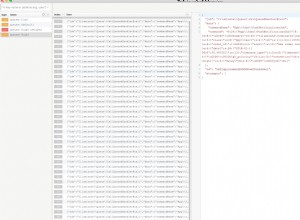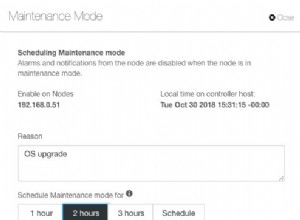La notation est basée sur le nombre de correspondances radicales, mais il existe également un coefficient intégré qui ajuste le score des correspondances par rapport à la longueur totale du champ (avec suppression des mots vides). Si votre texte plus long comprend des mots plus pertinents pour une requête, cela s'ajoutera au score. Un texte plus long qui ne correspond pas à une requête réduira le score.
Extrait du code source de MongoDB 3.2 sur GitHub (src/mongo/db/fts/fts_spec.cpp ):
for (ScoreHelperMap::const_iterator i = terms.begin(); i != terms.end(); ++i) {
const string& term = i->first;
const ScoreHelperStruct& data = i->second;
// in order to adjust weights as a function of term count as it
// relates to total field length. ie. is this the only word or
// a frequently occuring term? or does it only show up once in
// a long block of text?
double coeff = (0.5 * data.count / numTokens) + 0.5;
// if term is identical to the raw form of the
// field (untokenized) give it a small boost.
double adjustment = 1;
if (raw.size() == term.length() && raw.equalCaseInsensitive(term))
adjustment += 0.1;
double& score = (*docScores)[term];
score += (weight * data.freq * coeff * adjustment);
verify(score <= MAX_WEIGHT);
}
}
Configuration de quelques données de test pour voir l'effet du coefficient de longueur sur un exemple très simple :
db.articles.insert([
{ headline: "Rock" },
{ headline: "Rocks" },
{ headline: "Rock paper" },
{ headline: "Rock paper scissors" },
])
db.articles.createIndex({ "headline": "text"})
db.articles.find(
{ $text: { $search: "rock" }},
{ _id:0, headline:1, score: { $meta: "textScore" }}
).sort({ score: { $meta: "textScore" }})
Résultats annotés :
// Exact match of raw term to indexed field
// Coefficent is 1, plus 0.1 bonus for identical match of raw term
{
"headline": "Rock",
"score": 1.1
}
// Match of stemmed term to indexed field ("rocks" stems to "rock")
// Coefficent is 1
{
"headline": "Rocks",
"score": 1
}
// Two terms, one matching
// Coefficient is 0.75: (0.5 * 1 match / 2 terms) + 0.5
{
"headline": "Rock paper",
"score": 0.75
}
// Three terms, one matching
// Coefficient is 0.66: (0.5 * 1 match / 3 terms) + 0.5
{
"headline": "Rock paper scissors",
"score": 0.6666666666666666
}




